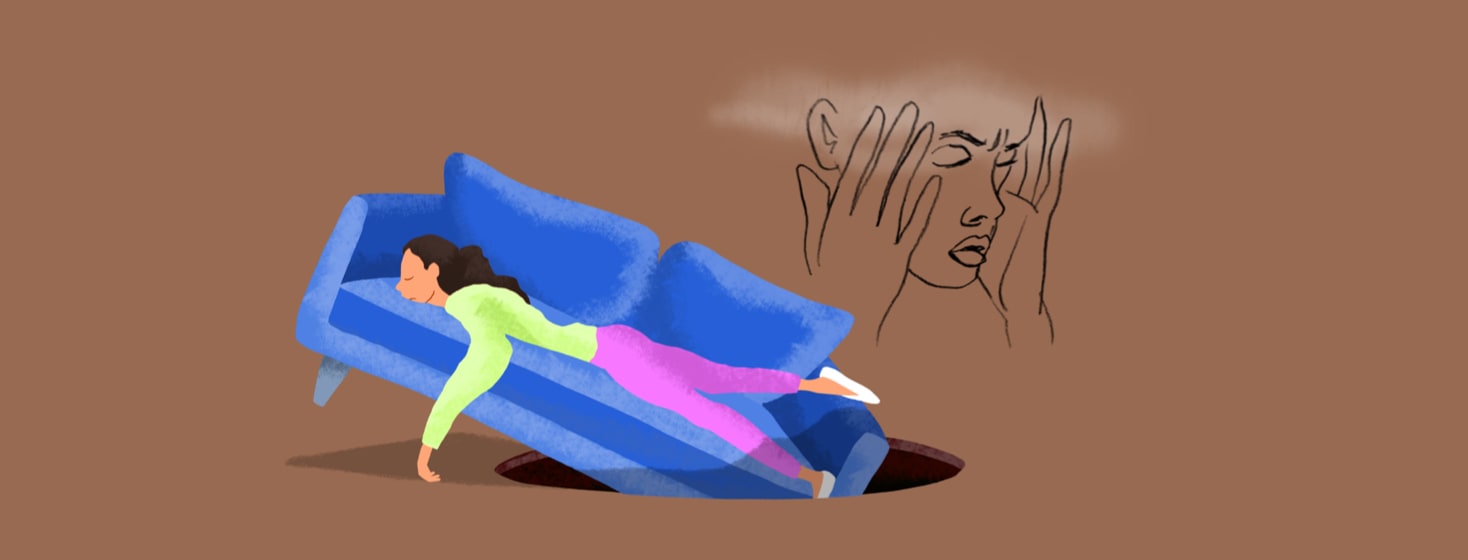Coping With Brain Fog and Memory Loss
As someone who has lived with a sleep disorder for most of my life, it took me until the middle of adulthood to realize that chronic sleep deprivation is one - a real thing, and 2 - has caused both brain fog and memory loss for me, especially in the late afternoons and early evenings.
In my most recent insomnia cycle, I have found that at 4:30 or 5am I am wide awake, and thus have begun starting my day this early. The first few hours are glorious - the house is silent, I have time to shower and get ready without interruptions. I eat breakfast while checking my email, I journal, and then I begin attacking my to-do list.
The problem is, somewhere around 11am to 12pm, at lunchtime, I start to feel the crash coming. The sleeplessness causing me to forget things, to leave words out of sentences and have trouble connecting the dots between different pieces of information.
Trying to cope
This has become especially frustrating when it comes to work, as I have been starting (and therefore ending) my days earlier than my colleagues. But for meetings scheduled in early to mid-afternoon, I find myself reaching for extra caffeine, splashing my face with water, writing down some quick notes about what I expect to accomplish or need to share on the call, and then taking diligent notes during the meeting.
You are not alone
Recently, I have been thinking that other community members perhaps experience these same symptoms and more when they really think about how chronic insomnia has affected them mentally, emotionally, and physically. If this describes you, know you are not alone.
I would love for my firsthand account of the side effects of sleeplessness to make another person feel seen, heard and validated. Because the ways to impact or improve my sleep are mostly difficult, long-term adjustments rather than just taking a medication and heading off to dreamland.
I have noticed I really need some strategies to manage the cognitive impacts that chronic insomnia has had on me over the years, focusing specifically on its impact in current times.
My strategies to manage
Here are a few strategies I have tried to manage brain fog due to insomnia:
- Consistent sleep schedule and environment
- Limiting screen time
- Practicing breathing and meditation during the day, but more importantly right before bedtime
- Making small lifestyle changes like regular movement and consistent hydration
- Cognitive strategies like prioritizing tasks, using tools like lists and planners, staying organized, and practicing time management
These are all small suggestions and may seem silly or unhelpful to start, but when combined as a routine and practiced daily, together this list has helped me to somewhat manage the brain fog and memory loss that I experience as a chronic insomniac.
Managing the symptoms from chronic insomnia
As someone here in this community reading this article, I would like to ask - have you struggled with these cognitive deficits after a period of terrible sleep or sleepless nights? Is it something you just bear down and push through, or have you also developed strategies and ways to help yourself manage the unforeseen and unexpected challenges?
I would love if you could share your story and any tips you may have below!

Join the conversation